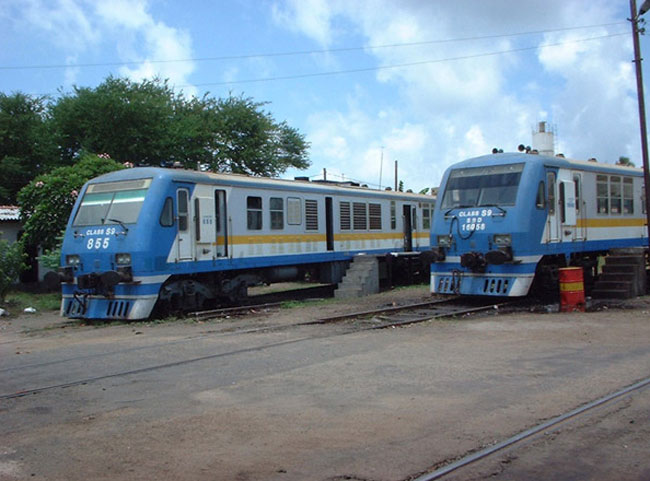Railway strike called off
December 13, 2017 11:42 am
Sri Lanka’s railway trade unions have decided to end their strike action after talks held today with the ministerial committee chaired by Minister Sarath Amunugama.
The committee and trade unions commenced talks at 9.00am today and it lasted for over two hours.
The trade unions decided to call of the strike, which had lasted nearly a week, as they had received solutions to their issues in writing.
President Maithripala Sirisena appointed the four-member committee to look into the grievances of the protesting railway employees.
The other members of the committee; Ministers Rajitha Senaratne, Akila Viraj Kariyawasam and Ranjith Madduma Bandara had also participated in the discussion.
The railway unions yesterday said that a decision will be taken on whether the strike is to continue or not after talks with ministerial committee today (13).
Several trade unions including the Locomotive Operating Engineers’ Association launched the strike from midnight on Wednesday (Dec. 06), based on several demands including the issue of the Railway Engine Driver Assistant exam.
On Friday, the President signed the Gazette notification declaring railways as an essential service.
Hundreds of thousands of students were left stranded yesterday after railway workers refused to abandon the strike during G.C.E. Ordinary Level exams.
President Sirisena had requested all workers engaging in the railway strike action to report for work, taking into consideration the inconvenience caused to students who are sitting for the G.C.E. Ordinary Level examinations, as well as the inconvenience experienced by the general commuters.
More than 400,000 students aged around 15 are sitting the examinations, which began yesterday, and the president’s office said the transport difficulties would cause them severe stress.
But a trade union spokesman had said staff would not return to work until their demands for higher pay were met. They also condemned the government for declaring railways an essential service, effectively making the strike illegal.
Sri Lanka’s heavily state-subsidised railways transported 136mn passengers last year.












